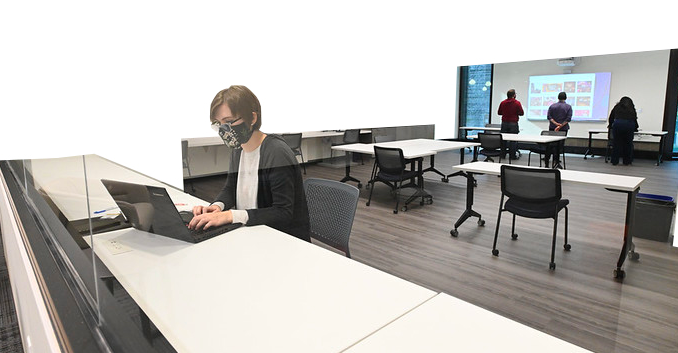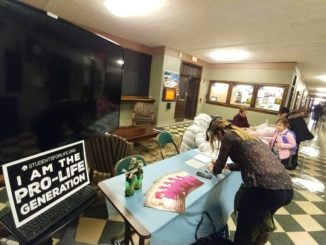
By Chelsea Zhao
Student workers who received unemployment benefits in 2020 are asked to pay back the funds due to federal and state regulations.
Devan Sibley, the Rebecca Crown Library Circulation Assistant, said that she, along with a campus librarian and a Priory pre-school teacher’s unemployment benefits over the summer are revoked by the Illinois Department of Employment Security after the university protested their claims.
In December 2020, Sibley received a letter in the mail and multiple phone calls from the Illinois Department of Employment Security (IES). The IES claimed that Dominican University protested Sibley’s unemployment claims.
Ange Reda, Senior Human Resources Generalist, said in an interview that the university is notified when an employee files an unemployment claim. The university can confirm or deny the claim, “such as if the person is still active or if the termination was justified.”
“In the case of students, because student employment is part of the academic record, we actually don’t reply with any information,” Reda said. “We sent a form letter to the Department of Employment Security in response that says, due to FERPA regulation, we are unable to confirm or deny any of the information.”
After speaking with the employee at the IES, Sibley was asked to pay back around $12,000 she had previously received as unemployment compensation. They recommended a payment plan of $1,100 per month, which Sibley said is beyond her level of affordability.
“There’s no way I could afford that. It’ll take me 10 years to pay this back. I’m appealing the decision,” Sibley said.
Sibley believes the Illinois Department of Employment Services contacted her because the university had first protested about her wages.
Since the university moved its services online in late March of 2020, Sibley along with approximately 120 student workers watched LinkedIn learning videos to earn their wages. According to Reda, the online learning option stopped in summer or fall of 2020, as offices configured to either remote or in-person work. But this does not mean students like Sibley were back to work during the summer.
“They let us do LinkedIn Learning twice, but we were only allowed the hours we normally worked in one week,” Sibley said. “So, from March to August, I was on unemployment because I couldn’t work at the library.”
Reda also mentions that student workers’ status as students is prioritized over their occupation as student workers.
“It’s determined that the student employment is not covered because to be employed as a student employee, you must be registered as a student, and your employment status is based upon that,” Reda said. “So if you lose your student status, that’s the reason why you could have lost employment.”
Reda states that most employment for students come from federal or institutional study dollars and not necessarily in a company payroll.
She corroborated that the arrangement is a state designation from the Illinois Department of Labor.
On referring to the CARES act about student employees, Reda said that only full-time students who work half-time at a non-academic setting is qualified for unemployment. The second qualified group is the graduates of 2020.
When asked how she hope the university might help to resolve the issue. Sibley said, “I’m honestly not sure. I understand why technically we don’t qualify, but that was my main source of income. They should have provided more support.”
qzhao@my.dom.edu



